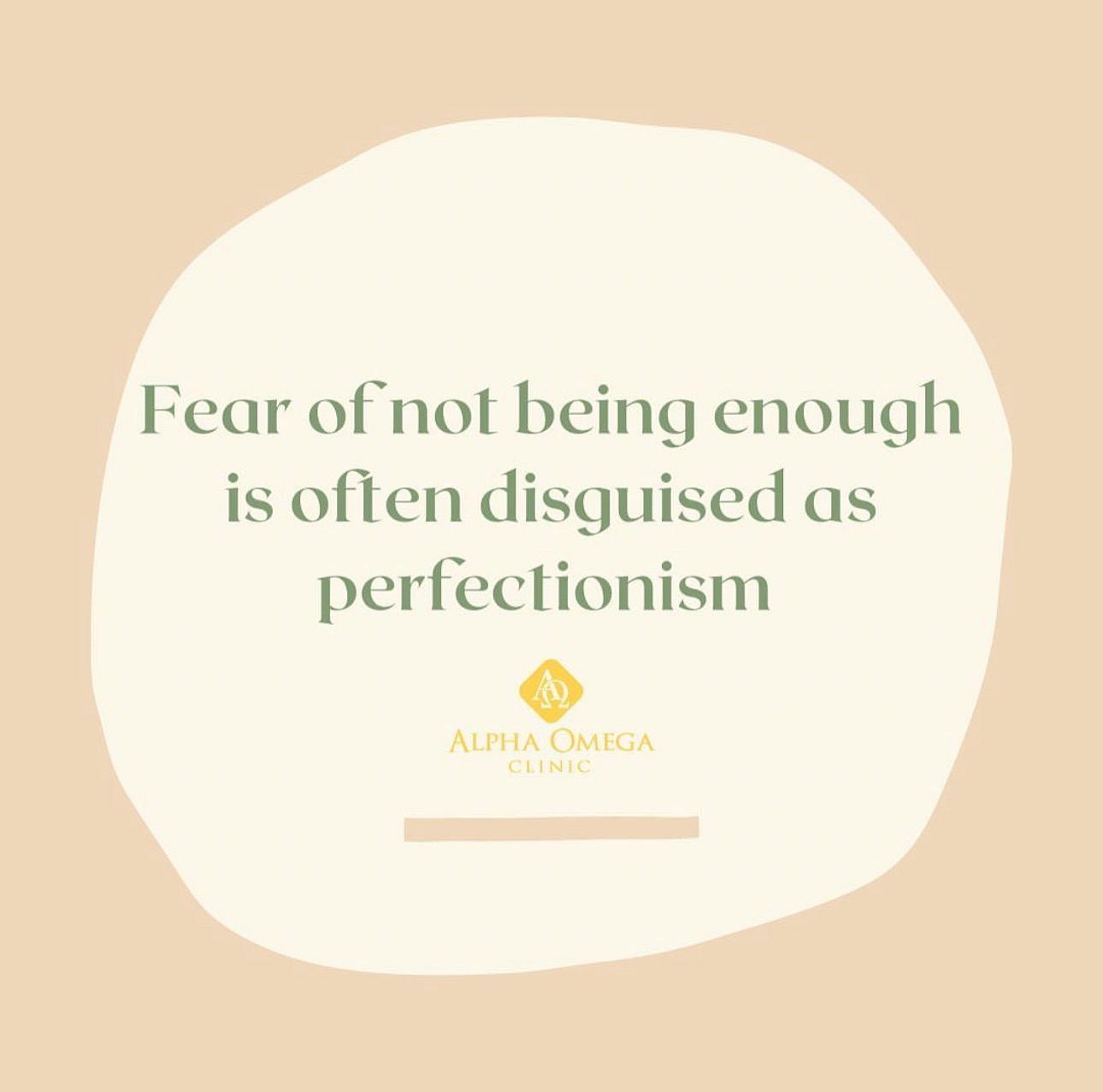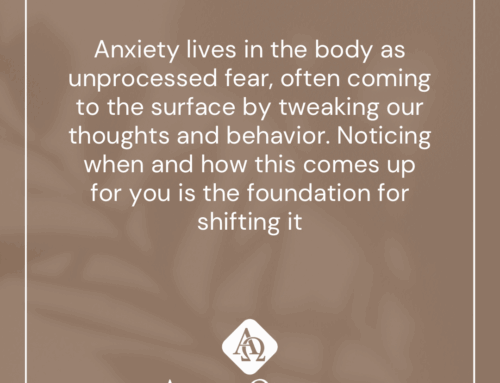Perfectionism can be seen as a coping strategy to manage a negative view of self. Typically, this view of self develops over thousands of interactions with those close to us. In other words, those negative thoughts and fears about ourselves have an origin story. How we are responded to and cared for shapes our mental models of self and other. If your interactions somehow left you feeling like you’re not enough, you may have adapted by trying to earn value. Simply put, this is what perfectionism is; trying to be “perfect” to be valuable or good enough. While certainly an understandable adaptation, it tends to focus us more on doing things to be enough (behavioral) rather than vulnerably sharing our fear of being enough (emotional). We know that within close relationships, behavior cannot scratch an emotional itch. So, despite our good effort, we will be left feeling the same fear regardless of how hard we try. Finding ways to engage with our story in a different way can help us adapt more effective strategies for coping with this fear.
Here are some questions to help explore your story (borrowed from Dr. Scott Wooley):
Who did you go to for comfort when you were young?
Could you always count on these people?
When were you likely to be comforted by these people?
How did this person/these people know you needed connection and comfort?
Were these people/this person unavailable at critical times or did they betray you?
What did you learn about comfort and connection from these experiences?
If no one was safe, how did you comfort yourself? How did you learn that people were u safe?
The answers to these questions can help make sense of how you feel, think, and act in relationships now. This isn’t about judging yourself or others, it’s about validating how and why you adopted certain ways of coping with distress. Understanding the story of our relational experiences can open the door to new experiences as we slowly take risks to ask for and receive the comfort and connection we’ve been missing all along (with God, parts of ourselves, or loved ones!). Compassion leads the way to growth.
Want more ways to receive this content? Follow us on Instagram or Facebook or subscribe to our e-newsletter.
Want to support our work? Visit aoclinic.org/donate
* The information provided is for self-enrichment and not intended to replace any necessary mental health treatment.
Warmly,
Jonathan Dixon, LMFT
Alpha Omega





